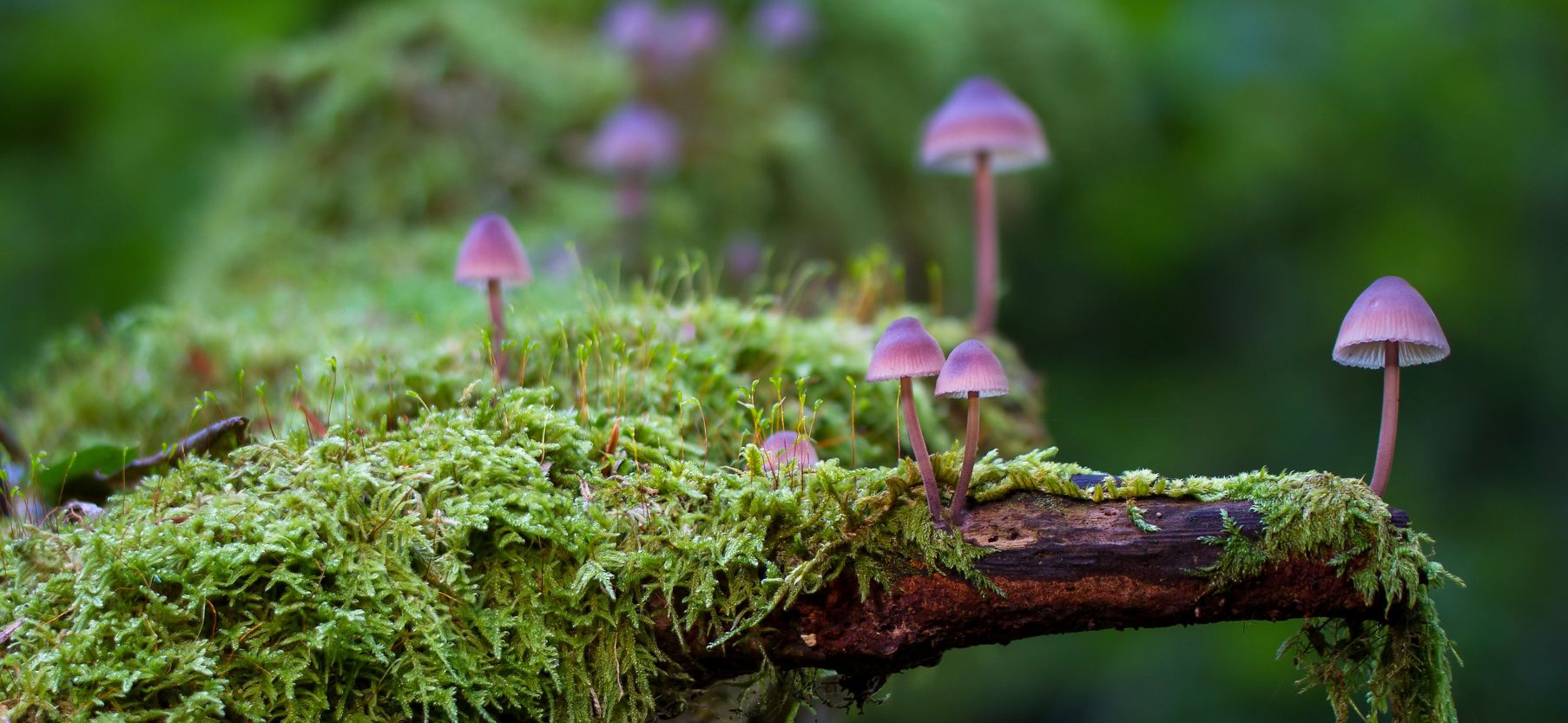Although they’re more likely to be found in grocery stores than in pharmacies, these days it seems like mushrooms are more often described as potential medicine than as food. But when thinking about mushrooms from a medicinal or therapeutic perspective, it’s important to differentiate the so called ‘functional‘ type from the psychedelic — especially if you’re planning to add them to your daily routine. At the most basic level, comparing functional mushrooms vs. psychedelic mushrooms comes down to the presence of hallucinogenic effects. Psychedelic mushrooms have psychoactive effects and can produce a “trip”, whereas functional mushrooms do not. Both types of mushrooms can offer both physical and mental health benefits, but the specific effects they have on the mind and body are very different.
Defining functional mushrooms vs. psychedelic mushrooms
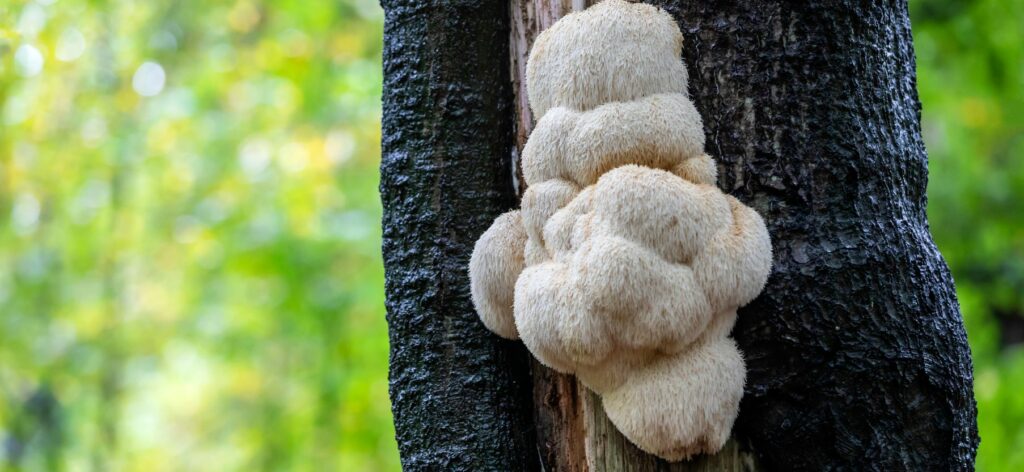
What are functional mushrooms?
Functional mushrooms are defined as any mushroom with beneficial properties, such as increased energy or cognition. They usually contain compounds like polysaccharides which have been shown to help boost immunity, reduce inflammation, and provide overall support for good health. The most popular functional mushrooms include varieties such as Reishi, Cordyceps, Chaga, and Lion’s Mane. These have been used in traditional medicine for centuries to promote overall wellness, and modern scientific research into functional mushrooms is beginning to reveal incredible potential health benefits.
Studies have also suggested that Lion’s Mane can stimulate nerve growth factor, which may help with cognitive function and even reduce symptoms of depression. Turkey tail mushrooms, used in traditional Chinese medicine for centuries, are rich in powerful polysaccharides and flavonoids which can provide a wide array of health benefits. The compounds they contain have been found to help stimulate the immune system, with some studies suggesting that they may even be able to help the body fight off certain types of cancer when used in conjunction with traditional medical treatments.
What are psychedelic mushrooms?
Psychedelic mushrooms are those that contain psychoactive compounds such as psilocybin, which can produce a “trip” or altered state of consciousness. They’re sometimes taken recreationally but have been traditionally used by various cultures around the world for spiritual and medicinal purposes. Ongoing research suggests they can be beneficial in the treatment of certain mental health conditions, including PTSD and depression. Perhaps the best-known type of psychedelic mushrooms are Psilocybe cubensis, which includes popular strains like Golden Teacher and Penis Envy.
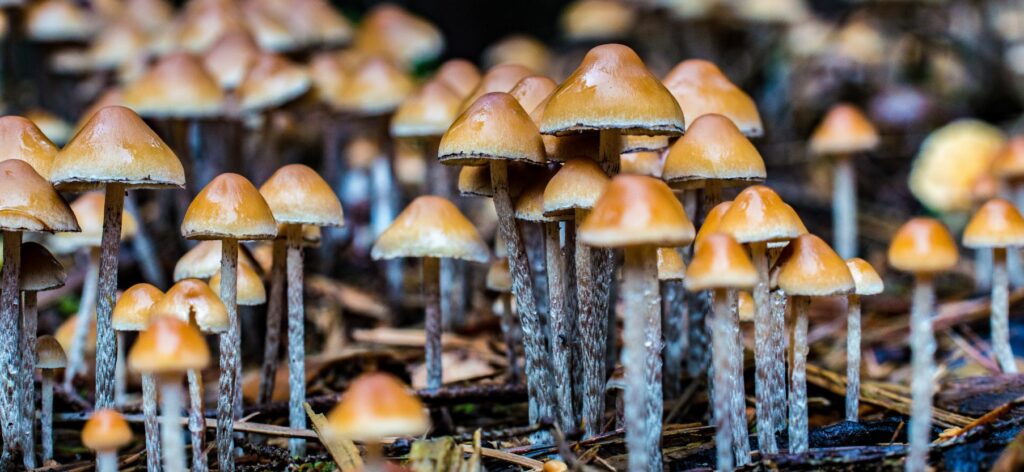
The legal status of psilocybin, the active compound found in psychedelic mushrooms, varies around the world. In Canada and the United States, psilocybin is still a controlled substance, making it illegal to sell or possess. However, some US states have recently decriminalized or even legalized the use of psilocybin for therapeutic purposes. In Canada, there are also exceptions made for use in psychedelic-assisted therapy, particularly in end-of-life care.
In February 2023, Australia officially become the first country to formally recognize psychedelics as medicine. As of July 2023, therapeutic use of psilocybin will be legal when prescribed by a psychiatrist for the treatment of certain mental health conditions.
Comparing benefits
Both functional and psychedelic mushrooms have potential medicinal benefits. Functional mushrooms have been shown to support overall wellness, help boost immunity, and reduce inflammation. Psychedelic mushrooms are being explored as a potential treatment for mental health issues such as anxiety and depression, with some promising results.
The most obvious difference between the two is that psychedelic mushrooms can produce a “trip” or altered state of consciousness, while functional mushrooms do not. Additionally, when it comes to medicinal properties, each type of mushroom has its own unique set of benefits.
Another difference between the two is the amount of scientific research that exists exploring their benefits. While neither is particularly well-researched compared to pharmaceutical medicines, the fact that psilocybin has been illegal for decades in most countries has prevented researchers from exploring how it can be used therapeutically. On the other hand, functional mushrooms are already being used in a medical context. In Japan, for example, Krestin, a compound found in turkey tail, is approved for use in cancer treatment. It has been used in thousands of patients since the mid-1970s, and has a very well-established safety record.
Safety
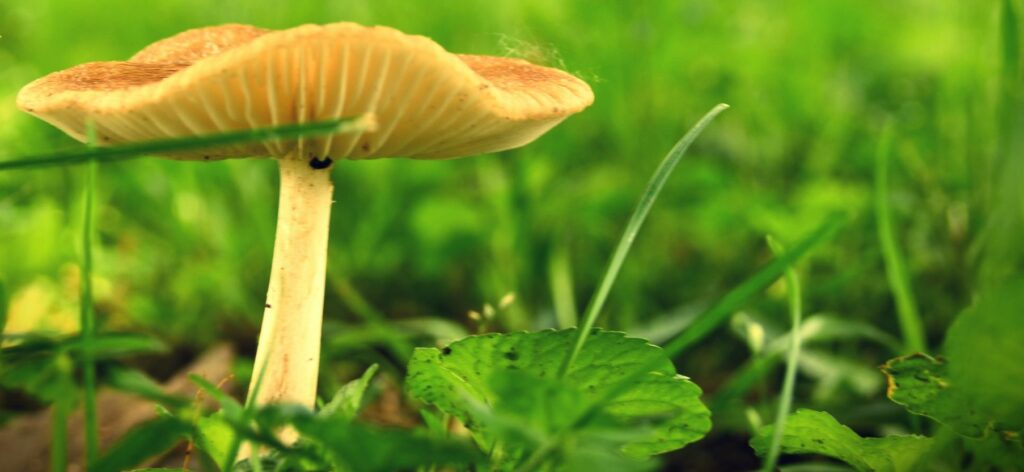
Are psychedelic mushrooms safe?
Overall, psychedelic mushrooms offer potential benefits for certain individuals and could revolutionize the way we think about mental health treatments. But research into the therapeutic uses of psychedelic mushrooms is still in its early stages, and like any medicine, they do come with some risks. When used recreationally, they can cause feelings of paranoia and panic or lead to adverse reactions such as nausea or vomiting. Psychedelics are also not recommended for individuals with a history of psychosis or bipolar disorder.
For those considering psychedelic-assisted therapy, it’s important to ensure that you receive treatment from trained professionals in a safe, supervised setting. It’s also essential to be honest with your therapist about any current or past mental health conditions.
Are functional mushrooms safe?
Yes, functional mushrooms are generally considered safe for most people. However, it’s important to consult with your doctor before beginning any supplementation regimen and follow the recommended dosage instructions on product labels.
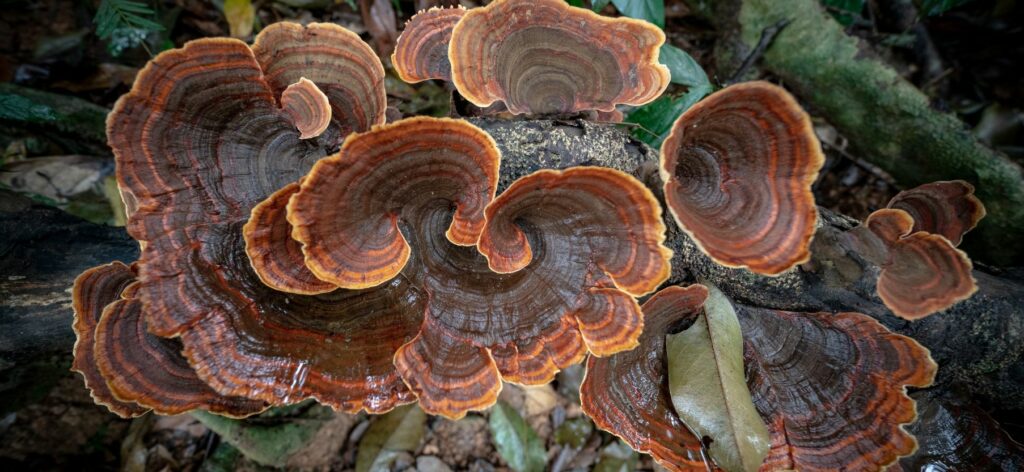
It’s also important to note that functional mushrooms are not intended to be a substitute for traditional medical treatment. While they can provide general health benefits, they are not an effective treatment for any serious medical condition on their own.

